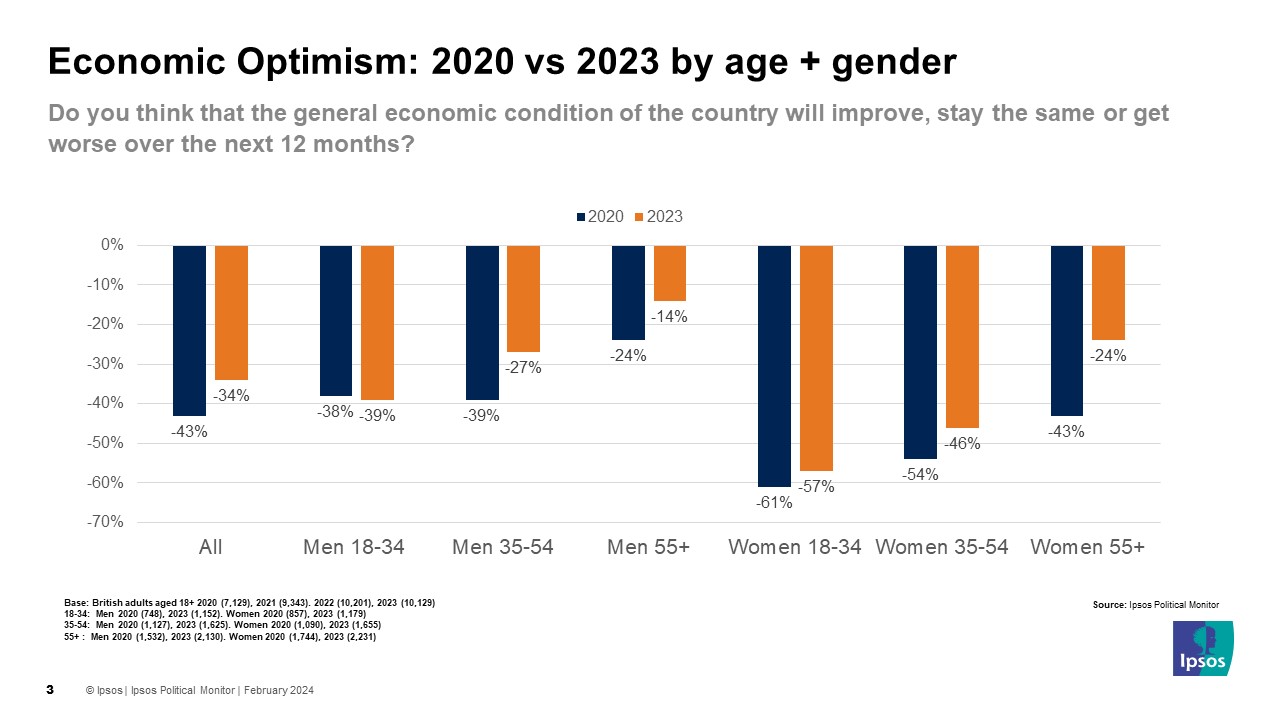Young people are as pessimistic about the economy as they were during the pandemic
New analysis conducted by Ipsos shows that British adults aged 18-34 were as pessimistic about the future of the British economy in 2023 as they were during the height of the COVID-19 pandemic in 2020 – with young women the most negative. Older Britons have become slightly more optimistic – though are still net negative.
Young people are as pessimistic about the economy as during COVID-19
Across monthly polling Ipsos conducted last year, on average 22% of Britons predicted the economy would improve in the next year, against 56% saying it would get worse. This created a net economic optimism figure of -34 for 2023.
Compared to 2020, when economic optimism was at -43, Britain has become slightly less negative about the country’s finances since the height of the COVID-19 pandemic.
However, while optimism has improved slightly among older Britons, those aged 18-34 were just as negative in 2023 as during 2020. Their economic optimism score last year was -48 compared to -50 in 2020.

Young women are the most negative about the economy’s prospects
Net economic optimism among women aged 18-34 has remained strikingly low, at just -57 in 2023, which is comparable to the -61 registered in 2020.
This is eighteen points lower than net economic optimism among men of the same age, who scored -39 in 2023. Across age cohorts, women are consistently more pessimistic than men.

Ipsos Director of Politics Keiran Pedley said of the findings:
While the public mood is negative in general, it is more negative among some groups than others. While it is common for women to be more cautious about the country’s economic prospects than men, it is striking just how pessimistic young women were last year (and how pessimistic young people were in general) and how the levels of pessimism seen last year match the height of the Covid-19 pandemic in 2020.
Technical note
Scores above are taken by aggregating monthly Ipsos data on an annual basis and then looking at scores by key demographic groups.
Economic optimism explained. Every month Ipsos asks a representative sample of British adults whether they expect the state of the economy to improve, get worse or stay the same in the next 12 months. An ‘Economic Optimism Index’ score is created by subtracting the proportion that say it will get worse from the proportion that say it will get better. The higher the score the more optimistic the public are about the future of the economy and the lower the score the more negative they are. Data in this release are the total scores across all months for each of the past four years and then looks at results by different groups.




